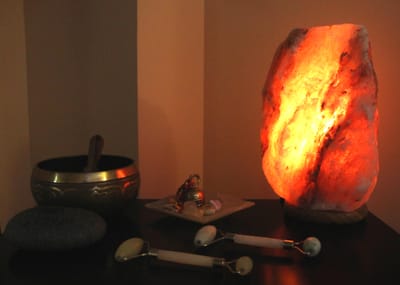Acupuncture
To make an appointment: (306) 373-9990

How does acupuncture work?
Acupuncture has been a respected and traditional form of Chinese medicine for thousands of years. Throughout the skeletal, muscle, organ and nervous system, there exists a meridian system that flows through the body like electrical wiring. In Chinese Medical philosophy, disruption of the electrical system, be it through trauma, poor diet, excess stress, or bodily changes due to aging can lead to disease and ill health. By using fine needles at exact sites the body’s wiring can be altered to affect positive changes in physiology, which results in improved health and decreased pain.
I love Chinese Medical Philosophy because I have seen first hand the changes that this treatment had made in many people's lives.
Chinese Medical Theory suggests, for example, that when a person is having trouble sleeping, it’s because the spirit can’t return to the heart at night to rest. Stimulation of acupuncture points along the Heart channel can make a difference. Acupuncture works by stimulating points that refer into and through the nervous system. By choosing points that affect sleep the brain biochemistry that regulates sleep (rebalancing serotonin and norepinephrine levels in the brain) is changed.
This is acupuncture.
Acupuncture has been a respected and traditional form of Chinese medicine would say that treatment for:
Whole-body wellness:
- Smoking cessation
- Addiction management
- Depression
- Anxiety
- Insomnia
- Obesity
- Neck pain
- Shoulder pain
- Chest pain
- Hiatal hernia
- Diarrhea
- TMJ, Temporomandibular joint syndrome
- Headaches
- Sinusitus
- Leg pain
- Foot pain
- Stomach problems (IBS, Crohn’s)
- Urinary problems
- Liver and gall bladder cancerns
- Kidney and bladder concerns and more.
Here is a list of conditions that have shown to be responsive to acupuncture treatments according to the World Health Organization (to see the original publication click here):
- Upper Respiratory Tract
- Acute sinusitis
- Acute rhinitis
- Common Cold and Flu
- Acute tonsillitis
- Respiratory System
- Acute bronchitis
- Bronchial asthma (Most effective in children and uncomplicated conditions)
- Eye Disorders
- Acute conjunctivitis
- Central Retinitis Myopia (in children)
- Cataracts (without complications)
- Mouth Disorders
- Toothache
- Post Extraction Pain
- Gingivitis
- Acute and Chronic Pharyngitis
- Gastrointestinal Disorders
- Spasms of esophagus
- Hiccough
- Gastroptosis
- Acute and Chronic Gastritis
- Gastric Hyperacidity
- Chronic Duodenal Ulcer (pain relief)
- Acute Duodenal Ulcer (without complications)
- Acute and Chronic Colitis
- Acute Bacillary Dysentery
- Constipation
- Diarrhea
- Paralytic Ileus
- Neurologic and Musculoskeletal Disorders
- Headache and Migraine
- Trigeminal Neuralgias
- Facial Palsy (early stage, i.e., within 3-6 months)
- Pareses Following a Stroke
- Peripheral Neuropathies
- Sequelae of Poliomyelitis (early stage, i.e., within 6 months)
- Meniere’s Disease
- Neurogenic Bladder Dysfunction
- Nocturnal Enuresis (bedwetting)
- Intercostal Neuralgia
- Cervicobrachial Syndrome
- Frozen Shoulder
- Tennis Elbow
- Sciatica
- Low Back Pain
- Osteoarthritis
- Carpal Tunnel Syndrome
- Back and Knee Pain
- Fibromyalgia
- Chronic Fatigue
- Sports Injuries and Pains
- Reproductive & Gynecological Conditions
- Premenstrual Syndrome
- Dysmenorrhea (menstrual cramps)
- Spotting and Excessive Bleeding
- Amenorrhea (Loss of Menstrual Period)
- Impotence
- Infertility
- Incontinence
- Prostatis
- Mental Emotional Problems
- Stress
- Anxiety
- Depression
- Insomnia


